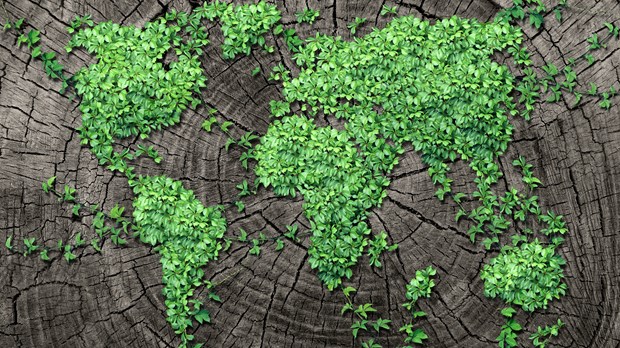Christian Conservationists

There are some things for which words cannot do justice—sights, smells, and sounds that make the heart come alive, that renew our passions, and that whisper to us of the presence of a good God.
On the southern route into Yosemite National Park, the road winds through a tunnel of trees before rounding a bend and giving way to a view known as Inspiration Point. There, just beyond the old stagecoach stop of Wawona, cars pull over to the side and people emerge to gaze silently at the vista, a majestic sweep of the valley with views of El Capitan, Bridal Veil Falls, and Half Dome. It's awe-inspiring.
Just south of Carmel, California, Highway 1 winds down the spine of our country's west coast in one of the most beautiful drives in the world, the Big Sur. People come here from all over the world to see where the Pacific Ocean crashes into the sheer cliffs of the Santa Lucia Mountains.
I could fill this article with descriptions of magnificent sights and experiences in our natural world. There's so much beauty, and God's glory is in all of it. Romans 1:20 tells us creation reflects God's invisible qualities, and that God has been "clearly seen, being understood from what has been made" (NIV). Psalm 19 tells us the earth proclaims the glory of God and the work of his hands. When we preserve creation, we preserve a form of God's testimony to us—evidence for seekers and spiritual formation for believers.

But this is only one of many reasons conservation of natural resources is important from a Christian perspective. When we take action to protect the earth God gave us, we also serve the poor, the importance of which is discussed throughout the Bible. Environmental decay results in dirty air, toxic water, soil erosion, and the depletion of species, all of which impact poor people first and hardest.
And then there's the simple command God gave. In Genesis 2, the refrain "it was good" follows God's creation of sunlight and stars, willow trees and orchids, red-winged blackbirds and white-tailed deer. What God created is a gift to us, and in verse 15 he commands us to take care of it. The Fall made that directive more difficult, but there's been no release from it.
Romans 8:19-22 tells us creation groans and waits to be liberated from its bondage to decay, and Hosea 4 paints the picture of the direct impact our sins have on creation: "The land mourns, and all who live in it waste away; the beasts of the field and the birds of the air, and the fish of the sea are dying."
It's true that environmental issues are often associated with liberal politics of the sort many Christians oppose. But this doesn't have to be the case. Christians can, and perhaps should, be at the forefront of efforts to preserve God's creation. Perhaps just like Jesus' resurrected body was recognizable but new, the new heaven and new earth promised to us (2 Peter 3:13) are from the template we now know.
So be a good steward and recycle! And do it with your children, teaching the next generation to value God's creation along the way. Turn off the lights when you leave a room. Consider buying a fuel-efficient car. Walk or ride your bike. Research and vote in ways that support environmental causes and are in line with biblical values.
And the next time you witness a sight that makes your heart come alive, that renews your passion, that whispers to you of the presence of a good God—remember that God created what you're looking at in order for you to have just such a response.
Read more articles that highlight writing by Christian women at ChristianityToday.com/Women
 Read These Next
Read These Next
 Spending TimeIf you want your life to count, you have to number your days.
Spending TimeIf you want your life to count, you have to number your days. For the Sake of the KingdomWe are 'all' ministers.
For the Sake of the KingdomWe are 'all' ministers.
 On a Non-Traditional Path? That's Okay.6 things I'm learning about calling in my first decade of adulthood
On a Non-Traditional Path? That's Okay.6 things I'm learning about calling in my first decade of adulthood








 Homepage
Homepage